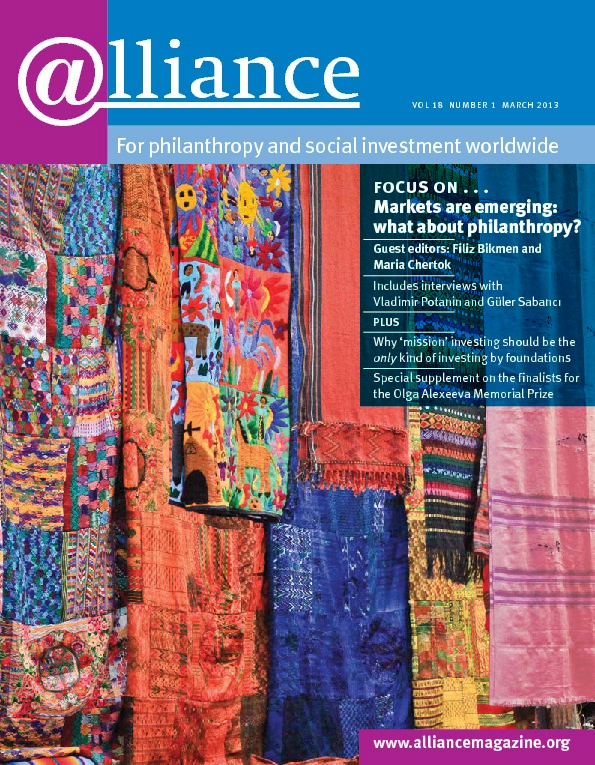I read with great interest the December special feature on ‘Networks and philanthropy’, which explored many theories on how networks work and included concrete examples from membership organizations. I would like to add to this the experience of the European Foundation Centre, which has for almost 25 years created and facilitated funders’ networks in Europe, understanding first-hand what really makes these groups tick.
We have learned over the years that network building is a lengthy and nuanced process that requires strong leadership, ownership, commitment and development of a common vision based on each partner’s individual strengths. Leadership is critical and should not be concentrated in one or two organizations but shared with a core of dedicated organizations. It is also important within the first year to identify common goals and define how to achieve them. These can be modified later but the overall mission and direction should be clarified early on.
Launching a joint project has proved a good way to focus networks, for example initiating a mapping study. In fact, several of our thematic networks have grown out of an initial mapping project, funded by a small group of funders, the project then serving as a means to identify potential foundations before forming a group. At the same time, we have learned to recognize when a network simply needs a safe space to exchange knowledge and experience, or when a network has come to its natural end.
It all boils down to understanding our members’ needs and those of their partners, and finding the right networking mechanism to support them, mindful all the while of the highly complex philanthropic landscape in which we work. Indeed, with close to 250 members from 37 countries both within and outside Europe, the EFC is a perfect laboratory to explore the art of networking. Our members are richly diverse – in terms of their mandates, the legal environments in which they operate and the cultures of giving they represent. By emphasizing the individual strengths inherent in this diversity and leveraging them to build common platforms, we have been instrumental in developing many successful collaborations and incubating numerous initiatives.
These models for collaboration are the DNA of the EFC, and foundations across Europe and internationally will continue to come to us to be part of these unique networking experiences.
Maria Orejas-Chantelot
Thematic networks director, European Foundation Centre





Comments (0)